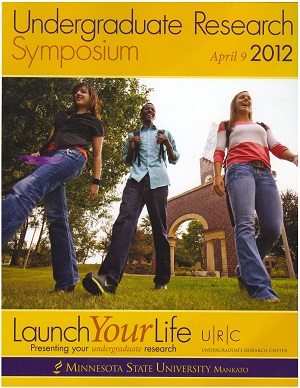Intution Overrules Logic When Detecting Deception
Location
CSU Ballroom
Start Date
9-4-2012 1:00 PM
End Date
9-4-2012 2:30 PM
Student's Major
Psychology
Student's College
Social and Behavioral Sciences
Mentor's Name
Emily Stark
Mentor's Department
Psychology
Mentor's College
Social and Behavioral Sciences
Description
When listening to a story that may be a lie or a truth, it seems we should use logic to detect the lie. However, previous studies show that relying on your intuition may be a better practice when distinguishing between a lie or a true story (Albrechtsen, Meissner, & Susa, 2009). The purpose of this current study is to find if participants are able to implicitly and/or explicitly distinguish between truths and lies. Seventy-one students volunteered to participate in this study. These participants watched sixteen short video clips that featured a person telling either a true story or a lie. The participants rated whether the story was true or not, and also rated the individual on how likeable and trustworthy he or she was as well as their willingness to work on a project with that individual. Our results showed that participants did no better than chance at overtly distinguishing between lies and truths; however, the participants were intuitively rating the truth tellers significantly more likeable and more trustworthy than the liars, and they were more willing to work with the truth-tellers (all ps<.05). Many people may try to use logic and common sense when detecting a lie, rather than relying solely on their gut feelings. However, our findings suggest that if you use your intuition, you may be better at detecting deception.
These findings may be beneficial to many professions including crime investigators and social workers as well as in jury deliberations and every-day social situations.
Intution Overrules Logic When Detecting Deception
CSU Ballroom
When listening to a story that may be a lie or a truth, it seems we should use logic to detect the lie. However, previous studies show that relying on your intuition may be a better practice when distinguishing between a lie or a true story (Albrechtsen, Meissner, & Susa, 2009). The purpose of this current study is to find if participants are able to implicitly and/or explicitly distinguish between truths and lies. Seventy-one students volunteered to participate in this study. These participants watched sixteen short video clips that featured a person telling either a true story or a lie. The participants rated whether the story was true or not, and also rated the individual on how likeable and trustworthy he or she was as well as their willingness to work on a project with that individual. Our results showed that participants did no better than chance at overtly distinguishing between lies and truths; however, the participants were intuitively rating the truth tellers significantly more likeable and more trustworthy than the liars, and they were more willing to work with the truth-tellers (all ps<.05). Many people may try to use logic and common sense when detecting a lie, rather than relying solely on their gut feelings. However, our findings suggest that if you use your intuition, you may be better at detecting deception.
These findings may be beneficial to many professions including crime investigators and social workers as well as in jury deliberations and every-day social situations.
Recommended Citation
Baudoin, Colette and Chelsea Schmillen. "Intution Overrules Logic When Detecting Deception." Undergraduate Research Symposium, Mankato, MN, April 9, 2012.
https://cornerstone.lib.mnsu.edu/urs/2012/poster-session-B/35




